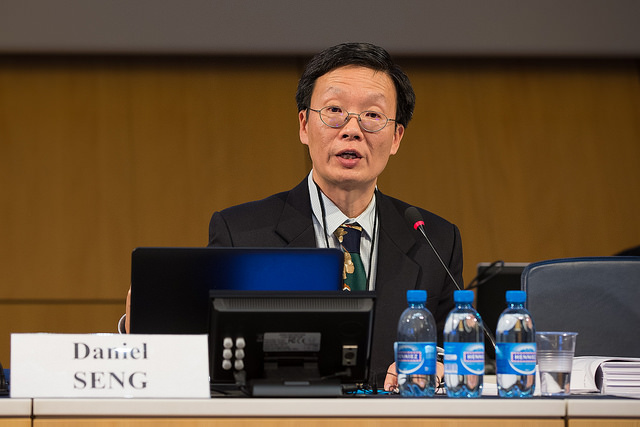It’s important, in the interests of transparency, accountability, and access to knowledge, that international organizations adopt open licencing of their publications and records. WIPO’s recent move to implement a new Open Access policy puts it among the forefront of international organizations adopting Open Access policies.
In 2013, Creative Commons announced a new Creative Commons licence specifically designed for international organizations (IGOs). International Organizations’ Creative Commons licences are similar to other Creative Commons licences, but are specially designed for international organizations, which have special copyright licencing requirements due to their privileges and immunities in national legal processes.
In adopting the Creative Commons-IGO licence, WIPO is at the forefront of UN agencies and other international organizations. WIPO joins UNESCO and a number of UN-funded programs and portals, as well as the World Health Organization (WHO) and the World Bank Group in adopting the licence. WIPO and other UN agencies must go further.
The 2012 Hague Conference on Private International Law unanimously endorsed a set of recommendations that included a set of 18 guiding principles on access to law (Greenleaf, Mowbray, & Chung, 2013). The principles of access to law widely endorsed by states call for not just open access to legislation and case law, but also open access to “relevant historical materials, including preparatory work and legislation that has been amended or repealed, as well as relevant explanatory materials.” Further, they call on states to “permit and facilitate the reproduction and re-use of legal materials[…]by other bodies, in particular for the purpose of securing free public access to the materials, and to remove any impediments to such reproduction and re-use.”
While not perfect, WIPO has been noted for its relative transparency and the accessibility of its documents. WIPO’s new Open Access initiative is a part of this. However, the licence, at present, will be applied to WIPO publications published online on or after November 15, 2016 and other select content. In the interests of continued openness, transparency and accountability, WIPO should apply the Creative Commons-IGO licence to all of its publications, including historical materials, meeting documents, and explanatory materials, and including documents published prior to November 2016. In an era of increasing skepticism of globalization, WIPO can build on its own best practices and take the lead on transparency and free access to law.
With thanks to Coralie Zaza for her extensive research on the Open Access policies of international organizations.


